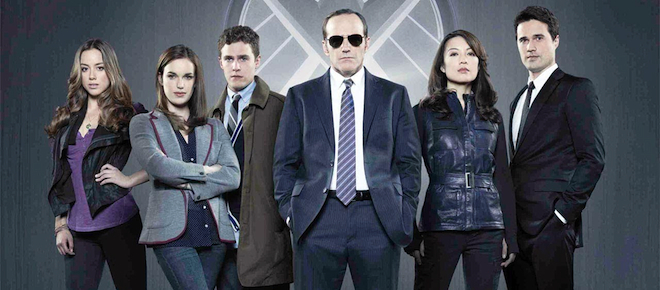Fix our expectations, not S.H.I.E.L.D. and Homeland
Not every TV series must live up to the ‘golden age’
ABC
Share

ABC’s Marvel’s Agents of S.H.I.E.L.D. is a lot of things to a lot of people (well, OK, a decent-sized Tuesday-nights-at-primetime amount of people): A lucrative way to extend the Marvel movie franchise! A glorious small-screen return for Joss Whedon! A consistent disappointment!
Actually, for most people, the hour-long drama is the latter: A potentially perfect product that is disappointing everyone across the board, and requires immediate creative intervention before it implodes like some sort of faulty tesseract. Already, there have been a plethora of online campaigns by critics and rabid Whedonites urging the showrunners and ABC to do this and that in order to help S.H.I.E.L.D. live up to its foretold-by-the-heavens potential.
But like Homeland—another show that was once seen as the saviour of modern television but is now the subject of countless pleas to either euthanize the drama or drastically reboot things—S.H.I.E.L.D. doesn’t need to fixing. Our expectations, however, do.
Critics have been doing their best job over the past few years to convince audiences we’re living in a golden age of television, where every show is a thousand times better than your favourite Oscar-winning movie, and every network is churning out the modern-day equivalents of Tolstoy and Dickens. Partly, this is true. There have been more quality, whip-smart television shows in recent years than ever before. But that doesn’t mean every program has to be a part of this renaissance. There’s still room for the mediocre—there’s still room for S.H.I.E.L.D. (Even if, God, those initials are annoying to type out.)
Audiences—and, mainly, critics—are holding out hope for S.H.I.E.L.D. because it comes from the Joss Whedon Factory ©. It’s a television connoisseur’s revenge fantasy, of sorts. After all, Whedon’s previous shows were either on smaller networks and ignored by the masses (Buffy the Vampire Slayer), cancelled before their time (Firefly, Dollhouse) or both (Angel).
But after having directed The Avengers, one of the most profitable films of all time, everyone believed the tables have finally turned for Whedon. It’s his time to run the show, with the big networks worshiping at his feet, forever grateful that he would bless them with his genius (and infinitely exploitable comic-book franchise). In turn, Whedon would deliver a beyond-quality program, one on par with the genius of his earlier work, but with the added bonus of a big-name corporate backer, and the funds that go along with it. Success was guaranteed!
Except . . . no. Instead, the show is what it is: a procedural that mixes sci-fi and CSI, with the occasional flash of Buffy-lite wit and just enough narrative curve balls to keep one happily distracted for an hour while folding laundry. It’s not appointment viewing, but sometimes you need a show to simply half-watch. The show’s unabashed middle-of-the-road-ness isn’t even Whedon’s fault. He directed the pilot and retains producing duties, but he’s hardly the day-to-day showrunner, not with an Avengers sequel in the works and hundreds of other Marvel-ized commitments on the go.
Yet all the obvious facts—that Whedon is involved only at a distance, that even Marvel can have mediocre products now and then, that ABC is hardly a destination for premium TV in the first place, Scandal notwithstanding—haven’t stopped the hordes from offering their own solutions online, ranging from the practical (be funnier!) to the prohibitively expensive (bring in Tony Stark every week!). Instead of expending effort on fixing a show that doesn’t really need fixing, we should be concentrating on celebrating what we already have. Which brings us to Homeland.
While it’s amusing to tally all the ways Homeland has crushed the nation’s collective spirits during its third season, the Showtime drama is still a gripping experiment in psychological drama. Sure, Brody may be living out a sub-rate John le Carré novel in Caracas—and the less said about Dana’s lovers-on-the-run storyline the better—but the heart of Homeland, what has always been the crux of the show, is the still compelling relationship between a deeply damaged woman and her equally complicated mentor.
As the show revealed two weeks ago, the Carrie-Saul dynamic is as strong as ever, and makes for sublime television. It may not be as tense or twisty as the first two seasons—or, for that matter, as ridiculously implausible—but it’s still a show worth celebrating, not throwing online eggs at.
Or perhaps there’s an easy solution to both problems here. In the final minutes of S.H.I.E.L.D.’s next episode, Nick Fury could walk into a room alongside Agent Coulson, with both of them staring down at the dossier of the latest team recruit: Carrie Mathison. And scene. You’re welcome, television!